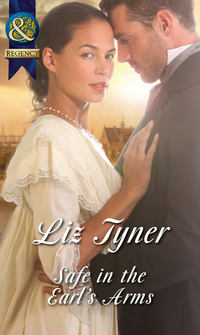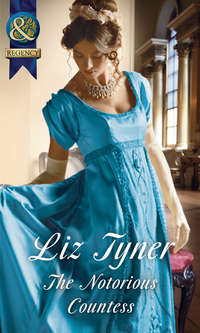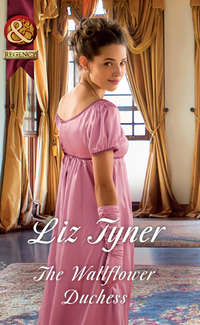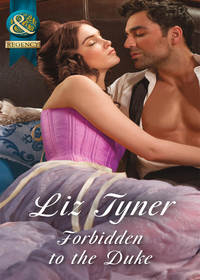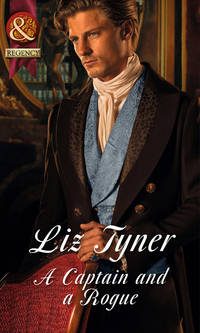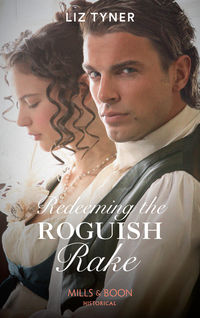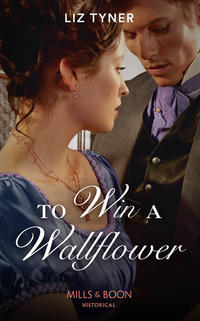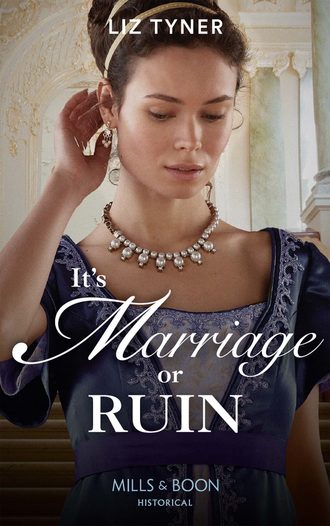
Полная версия
It’s Marriage Or Ruin
‘No.’ Her mother turned to stare out of the window. ‘You will have to content yourself with pencils, and stitchery and gentle pursuits. There are people in the world, Emilie, besides artists. And it is time you found that out and put away that folly. This discussion is over.’

In bed that night, Emilie kept envisaging the colours on a palette. The joy of her hands as they mixed the colours. The scent of turpentine.
She loved the scent of turpentine, no matter how unpleasant. It spoke of creation and love. She could not live without turpentine, aquamarine or burnt sienna.
She sniffed. She sighed. Perhaps she was cursed.
She would marry. She would discover a husband who would not notice if the money he’d allotted for clothing and jewellery was spent on the finer things, like easels or pigments.
Catching a senseless male could not be difficult and she hadn’t noticed any unwilling to be led by a woman hinting at delights.
Marriage would quiet all those titters her sisters made as they claimed Emilie was more suited to kiss her paintbrush than a husband.
If she married, it would no longer matter how small her waist was or if she got a drop of burnt sienna—a drop so small as to be invisible—on the rug. A man surely wouldn’t notice if she received a briar scratch on her cheek from searching for perfect berries to examine their hues. Her mother had wanted to flog her—and goodness, the scratch faded away, but the drawing of the berries had been enlightening.
Once she got the ring on her finger, she wouldn’t care what he did or where he went. Her goal was to be abandoned to her own ways. She knew she would have to survive kisses, but she would tolerate them, and knew she would have to do other things a wife should do, but she didn’t foresee that would take for ever. She would make sure it didn’t.
Then she would devote herself to watercolours and oils.
She must choose carefully.
The trick was in locating a man who didn’t have the inclination to control his property. One who might leave his belongings lying about, so to speak, so his possessions could do as they were inclined.
She would try hard to keep from overwhelming a nursery with children, but a little one would be dear to hold.
Actually, she would be pleased to have several children, she realised. Le Brun reportedly had created the most beautiful self-portrait of herself with her daughter. It was said that the portrait reflected the love between the two of them.
That would be a wonderful opportunity.
Marriage could work, assuming it was not taken too seriously.
Her husband must have money to buy all the paints she needed and an appearance to work well in oils.
And handsome men didn’t dig beyond the surface. They had wandering attentions and admired beauty. After he had acquired her, an attractive man would tire of his wife. His eyes would flicker to the other women who fluttered near.
She surmised the considerate thing to do would be to make certain he was a man who didn’t mind that he’d married a woman who had little use for him. If the things she’d overheard were true, it would be simple to locate such a man.
She didn’t want a suitor who had a heart—she might break it. She didn’t want a suitor who might have motivations deeper than a bird flitting from one spot to the next.
She examined her hand and decided a wedding ring would fit. Yes, she decided, she would accept a proposal. Now she had to decide on the date and the husband.
A very unsuitable husband would be perfect.
Chapter Three
‘Mama, Lady Cramson’s ball was divine last night and I am so anticipating Avondale’s birthday celebration.’ Emilie practised the words a dutiful daughter and a soon-to-be wife would speak. She was running out of occasions to get a proposal.
‘You’re attending? Of your own will? Another one? Are you considering marriage?’ She slanted her head back, studying Emilie.
‘Mother.’ She inhaled deeply. ‘I’m not intending to stay on the shelf. A betrothal might suit me better than I realised.’ She would get those paints back if it killed her. She had survived so far because she had been using her aunt’s paints in the night-time hours while her mother slept. And the lamplight was disastrous.
Oils, however, those had to be mixed and she could not manage to get them by her mother when they returned home. Her mother was wise to Emilie’s ways.
She grabbed Emilie by the shoulders and positioned them eye to eye. ‘You are not trying to trick me?’
‘I really should be married before the leaves turn their autumn shades.’
‘Emilie.’ Her mother frowned. ‘Perhaps you should go to Bath. The men of London society know you.’
‘They do.’ Emilie held her posture straight. ‘But they’re forgetful.’
Her mother dropped her hands and turned to the candle on the table. She moved it away from the book, closer to a vase. ‘I have already written to your father about taking you to Bath in the autumn because the men there will be more unlikely to have heard tales of your awkward ways.’
The words ran down Emilie’s spine like cold waste water from rinsing her brushes.
Emilie squeezed her hands into fists. ‘You don’t anticipate a man will see me as attractive?’
‘Not the true you, Emilie. You must be giddy and flutter your eyes and act more ladylike. You must act demure.’
‘Of course, Mama. I love my new dress.’ She batted her eyes, then turned away.
Emilie heard the clatter and turned back. Her mother was picking up the vase she’d knocked over. Fresh-cut roses lay on the table.
‘Not like that, Emilie.’ Her mother’s voice was soft. ‘You startled me.’
‘I am trying.’ Emilie briefly pressed her palm against her jaw and let her hand fall to her side as she examined her feet. ‘I have worn out a pair of slippers dancing, I’m sure.’
Her mother turned to arrange the flowers in the vase. ‘Be aware, Emilie. Keep your mouth shut. Tuck your chin under. Do not discuss anything to do with sculpture. Keep your corset tight. Let him talk, while you admire his every word.’
‘I’ll do what I can,’ Emilie spoke softly and forced her chin high when she departed the room. How was one expected to learn how to bat one’s eyelashes? she wondered, shaking her head.
She retired to her room, shut the door and, still holding the knob, stared at the new dress.
The gown was lying on the bed.
Walking forward, Emilie ran a delicate touch over the aquamarine silk enhanced by a second layer of even finer material flowing over it like a cloak of clear-spun sugar. She’d never owned a dress so feminine. So delicate. Exactly unlike her and exactly what she needed.
After she married, she could use it to wipe her brushes with if she wanted. Well, perhaps not. She touched the silk again and pulled it to her. This was another woman’s masterpiece and she would guard it carefully and be thankful to have it.
She held it closer to the window and repeated her needs to herself. Handsome to inspire creativity. Money to make sure he could live in town while she painted in the country. Someone who would forget all about her.
A quick rap sounded on the door and it opened. Aunt Beatrice sauntered in, her emerald bracelet sliding on her wrist. ‘I’m curious about the new clothing your mother has bought for you.’ Her eyes widened when she saw the dress. ‘It reminds me of one I used to have. Please don’t spill oils on it.’
‘I won’t.’
‘Your mother has been asking me to talk some sense into you.’ She rolled her eyes. ‘That’s a first. She must really be desperate to get you married if she’s asking for my help.’
Emilie shuddered. ‘You know how she is about seeing me well placed.’
‘Yes. I do. She is nothing like me. She is exactly like your grandfather. A man I cannot even bring to mind except he smelled like camphor and cloves, and who has been described much like they fitted him well.’
‘Mother speaks of him as if he floats above the clouds.’
‘I’m sure he did, Emilie. But we are mortals. Except we paint. Which puts us in a world of our own. But a romance could add some depth to your images.’ The mirror caught Beatrice’s attention and she took both her hands and poked at her hair. Then took out a few pins and managed to secure her hair.
‘Is that true? That romance could add depth to the watercolours?’
‘I told your mother I would say that. And it could be true. But you have to marry someone who is right for you, or you’ll be breaking your own brushes. I had the worst of luck until I met Andrew.’ Her aunt gave a dismissive toss of her words. ‘If not for the naked picture I finished of him, I doubt we would have made it to the altar.’
‘The wrong husband could be intimidating. He could destroy my dream, just as Mother is doing.’
‘You know that inheritance powder? Arsenic? You could always poison him later if it doesn’t work out.’ Beatrice gave Emilie a wink and laughed. ‘You know I am jesting.’ She twitched her shoulders. ‘My first husband—may he…stay wherever he went—had more problems than I could create and, trust me, I could cause plenty. But I had lots of instances to indulge in creativity after he abandoned me. Even more after he died. And Andrew loves my work.’
‘I’ve heard he can be dismayed by it.’
‘Yes—’ Beatrice’s head nodded in agreement ‘—but he loves it—from a distance. I keep myself between him and it and we get along wonderfully.’
‘I understand,’ Emilie said. ‘I don’t know what to do. I have a plan, but it’s flawed.’
‘A flawed plan?’ Beatrice tapped her earlobe. ‘Well, if you have a notion it’s wrong, then based on my experience I would say it is certainly a mistake.’
‘Or I could return home.’
‘You can stay at your parents’ home and dabble in your paints. You will be avoided, perhaps, but you’ll be all but forgotten.’ She had a bubble of laughter under her next words. ‘You can perfect an evil cackle and everyone will be afraid of you. You’ll be a sinister, spinster painter.’
Apparently, her aunt did not know that her paints were now forbidden. Emilie made a decision. A flawed plan was better than no plan and to do nothing was unthinkable.
She pressed her lips together, pushed her uncertainty out of her mind and said, ‘I have a plan with Mr Westbrook. Avondale’s younger son.’
‘Oh, no, no, no. Not him.’ Beatrice shuddered. ‘He’s a rake to the core. He won’t propose.’
Emilie turned back to lift the dress and hold it to her shoulders. ‘If I were to be caught in a compromising position…’
Beatrice stood, her gaze on the dress. ‘Then you would be ruined and compromised and likely unmarried.’
‘True.’ Emilie put the dress on to the bed, pulling it straight so it would not wrinkle. ‘I am not matrimony minded, except as a last resort. There are few men in the world like your Andrew who appreciate a woman of substance.’
‘To let you in on a confidence…’ Beatrice spoke softly and stretched her arms wide ‘…he doesn’t really relish my work. He adores me.’
Emilie put her hand to her neck. ‘Truly. And you are happy?’
‘Of course…and I’m painting better than ever. Not as much. But still, better than ever.’
Emilie bit the inside of her lip. Usually she trusted her aunt, but she didn’t believe Beatrice’s skills were better now because of Andrew. Truly, it was talent.
Except for Beatrice’s Andrew, Emilie now realised a husband could treat art like a rival, and wouldn’t accept it any better than her mother did. Beatrice had admitted she was working less and she’d not grasped that her skills improved with practice, and she had spent years and years perfecting her talent before finding Andrew.
‘I have to convince my mother that a wedding will never happen.’ Emilie stared at the silk and straightened a puffed sleeve. ‘Once she forgets that, she’ll leave me alone.’
Beatrice clucked her tongue. ‘You really should consider wedded bliss, Emilie, to a man who can afford good staff. Those large portraits get heavy.’
‘I have, but I cannot decide between whether it is better for me to be married or to be ruined.’ She took her aunt’s hands and, even with Beatrice in heels, Emilie rose above the other woman. ‘Please help me, Aunt Beatrice. And if Mr Westbrook is such a rake, he would survive a compromising position and be elevated by it. I, on the other hand, would be disgraced.’
Beatrice frowned. ‘I would not be a party to this, but I know how much the oils mean to you. Plus, Mr Westbrook will never marry at this point. He’s living it up too much. You’d best forget marriage if you’re thinking of the second son.’
‘True. And I shouldn’t be forbidden the love of my life, art, and Mr Westbrook won’t be trapped into a marriage with a woman who can hardly tolerate him.’
‘Make sure you do not let your mother near any of that inheritance powder after this. She is going to be very, very angry with me.’

Emilie would hardly have counted the Marquess of Avondale’s birthday celebration a celebration. Avondale had disappeared early into the event. A duchess and her friends were taking turns at the pianoforte in the next room, playing verses of different songs, adding occasional bursts of laughter. Marcus had played several songs earlier, singing along. His voice had floated through the air. She’d heard the ladies ask him to play more, but he’d begged off.
Her aunt Beatrice had disappeared, chatting with someone.
Most of the men had congregated in the library and were playing a wagering game of cards, calling out to each other as if they were all brothers. Emilie did not know who was Horsey, Al, Bottles, Dupes or Doughy, but she was certain that Terry was Lord Terrance, and of course, Nathaniel was Mr Westbrook. She couldn’t imagine calling him Nathaniel, which surprised her as she had no trouble conceiving Lord Grayson as Marcus.
Mr Westbrook had showered attention on her when she arrived, but the men had finally called him into the card game, leaving her with the older women.
Lady Avondale sat with her friends and a servant stood by to bring them refreshments or attend to whatever they required. Emilie’s mother was perched on the outer edge, leaning in, and on her very best behaviour. And Emilie settled at the edge of that, her back straight and the rest of her as hidden as possible.
When they departed London, she would not miss society as much as her mother would.
‘Miss Catesby.’ Marcus’s voice moved over her like a song.
She turned, surprised he’d entered the room. ‘Lord Grayson.’
‘Her Grace asked that I might fetch you to sing with us.’
She glanced at her mother and her mother beamed. Emilie knew that if Marcus had asked her to plummet from the edge of the earth, her mother would have said nothing to disrupt Lady Avondale’s conversation.
Emilie rose and walked with him. As they neared the pianoforte, the Duchess asked Emilie if she would like to play a tune with them. Emilie declined. ‘I fear I’m not musical.’
‘Neither am I,’ the Duchess said, shaking her head. She wrinkled her nose. ‘I try to surround myself with people who are talented, so I don’t have to play, and it makes everyone else happy. And trust me, everyone prefers me to listen.’
Her friends chuckled and she suggested a tune to one of the ladies and the conversation swirled in a different direction.
Marcus stayed at her elbow.
‘You’re accomplished at the piano,’ she told him, recalling the tune he’d played when she’d been in the other room.
He acknowledged her words with a lift of his brows. ‘My father insisted I learn. It was an easy way to make him happy.’
Emilie realised she felt a pocket of silence blanketing her and Marcus, yet she didn’t want to move closer into the circle of women. She would dearly have loved to have asked him a question. Any question. Just to hear his voice again. But the silence between them continued beneath the music.
A woman played a quick, rousing tune, then glanced in their direction. ‘Your favourite song, Grayson.’
Everyone laughed, including Marcus, but Emilie didn’t get the joke—and she realised she wasn’t sure that she liked the sound of his name the way the other woman said it.
‘I fitted words to the music.’ Marcus tilted close to Emilie so their conversation didn’t interrupt the others as they moved on to something else.
‘They recall it.’ And she’d been envious of the rapport they’d all shared.
‘It’s an easy melody to play with.’ He moved his left hand as if playing the piano. ‘Good tempo.’
She forced her gaze away from his fingers. Emilie realised she didn’t have to ask him to pose if she planned to reproduce his hands. That small movement, the fluttering of his fingers, imagining them over piano keys, would stay in her mind, locked there.
Her shoulder touched his. She didn’t know which of them had moved.
‘Bravo.’ He spoke to the woman at the piano when her song ended and Emilie’s shoulder chilled when he moved away.
The other ladies concurred that the last musical piece had been stellar.
He touched her elbow as the next song began. ‘You’ll want to peruse the family’s art collection,’ he said, gently moving her to the room where her mother sat.
Lady Avondale took a platter of biscuits from the servant and was holding it to the ladies nearest her.
‘I would like to show Miss Catesby where you have placed your portrait,’ he spoke to his mother. ‘If neither you nor her mother objects.’
Lady Avondale’s lips turned down, deprecating, as she shooed him away. ‘Oh, please. Do not make the child suffer so.’
Emilie’s mother’s head jerked to assess Marcus and then Emilie’s eyes. Her jaw clenched, but she relented. ‘Of course, if it is fine with Lady Avondale.’
‘Do have some more biscuits, everyone.’ Lady Avondale commanded attention again. ‘The cook adds beetroot juice to these, which gives them a nice colour, and the dried berries add something. We jest that they are goat food because of the oats, but they are tasty.’
While his mother served, Marcus moved to an adjoining door and opened it wide. He ushered Emilie inside.
The room was little more than a sitting room attached to the main one and as she entered, Emilie checked her surroundings. Instead of a portrait of the Lady Avondale, she viewed a life-sized rendition of the Lord Avondale. The other portraits, some little more than miniatures, were scattered here and there about the room. No true design to it—the portrait of the Lady Avondale had been added last and not in an appropriate place beside her husband, or their family portrait, but in a conspicuously inappropriate place to the side and closer to the floor.
Emilie gasped, rushing to it. ‘It should be in a place of honour.’ She waved her hand to the bigger picture of Lord Avondale. ‘By him.’
‘She is happy to have the portrait where it is. She claims she doesn’t particularly care to view herself when she is in here, but her children.’ He looked at the painting. ‘That is what she says.’
Emilie moved to the wall and began to scrutinise the larger likeness of Lord Avondale. When she finished with her viewing of the largest image, she turned, appraising Marcus, as he relaxed against the door jamb, half in the room, half out, lost in his musings.
She returned to her perusal of the collection.
‘Miss Catesby.’ Marcus’s voice jolted her, even though the words were quietly said. She returned to the world at her elbow.
Marcus watched her, smiling.
‘Yes?’ She stumbled over the word.
‘Your mother is telling the Marchioness she’s leaving and she’s asking for you. You’ve been in here nearly half an hour.’
Emilie collected herself. ‘It is the brushstrokes. I have to study them. And the colours. Most of the artists are talented beyond belief.’
Marcus’s gaze turned wistful. ‘I would agree that you adore their skills.’
Their eyes locked. He understood.
‘It’s true.’
His shoulders lifted briefly, in both acknowledgement of her words and somehow telling her again that she loved her craftwork.
‘I can’t help myself.’ She extended her hands, palms upraised.
‘Sometimes beauty does that to us,’ he said.
‘Like with music, to you.’
He shook his head. ‘No. Not music. I learned because I was taught well. I did it to please my father. I have a gift for it and it is a pleasant way to pass a morning or a way to amuse friends. A tool.’ He flicked his words away with a smile. ‘Much like a teapot.’
‘Or a paintbrush,’ she added.
‘Is that truly all you comprehend to be worthwhile?’ he asked.
‘Frequently, it is. I want to stay in my room with a portfolio. I keep getting pushed out to gatherings.’ She checked back over her shoulder at the portraits again. ‘I must appreciate the social events, as they enable me to experience rooms such as this. A grander thought might be if I was shut away in a tower, much like a princess, but I wouldn’t want to be rescued. I would need my portfolios.’ She paused. ‘I would need new subjects to examine and gardens so that I might have the best light, but it would be a haven.’
‘Pardon?’ He bent closer. ‘Did you say heaven?’
‘No.’ She laughed. ‘A haven. I surmise you are right about heaven, also.’
‘That sounds plain, coming from the Duke of Kinsale’s niece.’
‘My days are plain when I am not in London,’ she said. ‘My grandfather was pleased when my mother fell in love with a cleric and made my uncle promise that he would provide a parish for Father always. Father is so very quiet. He prefers his role of a cleric and gets on well with the parish, but not so easily with Mother’s family. You can tell he is uncomfortable. Sometimes I’m the same way. Preferring solitude.’
‘You’ve seemed to revel in the last soirée.’
‘I had planned to have a delightful evening, no matter how much effort it took.’ She glimpsed him from beneath her lashes. ‘Why should I not enjoy myself? You can enjoy art without seeing the true colours and I can hear music when there is none.’
She lifted her skirt enough to swirl around. ‘When I’m in the presence of landscapes that I enjoy, I can hear the symphonies in my head. The colours create music.’
She swept through the door and away from him, moving into the next room, pretending she was an actress making her stage entrance.
The men had joined the women and Mr Westbrook was telling her mother some outlandish tale judging by the laughter in the room.
Then Mr Westbrook saw her and observed his brother following behind. Immediately his attention switched back to her mother.
‘Lady Catesby, have you seen our ancestral portraits?’ Mr Westbrook asked. ‘You must before you leave. My brother can tell you who they are much better than I. He’s aware of distant cousins that have faded from my memory.’ He dipped his head to the Marchioness. ‘Mother has an impressive family history of her own.’
Lady Avondale laughed away the compliment.
‘I would like to explore the gallery,’ Emilie’s mother answered, surprising Emilie with the sudden interest.
Marcus waved a hand for her to precede him and her mother went ahead.
The Lady Avondale ushered out the other guests who’d been leaving, and Emilie stayed alone with Mr Westbrook.
‘I would relish being in your presence again. Please tell me you won’t be leaving town soon,’ Mr Westbrook said.
‘I’m uncertain.’
He took her hand and she did not pull away.
‘Please let me know if we might meet again some day. I would be at your disposal. To take you on a carriage ride…’ he said. ‘To assist you in any way that I might…’
Emilie heard the interest in his voice. ‘Are you certain?’


